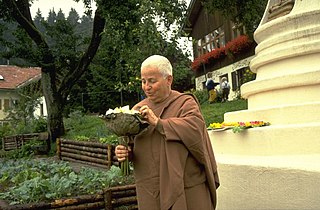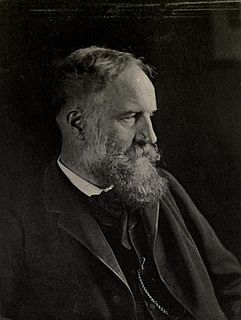A Quote by Henri Frederic Amiel
Charm is the quality in others that makes us more satisfied with ourselves.
Related Quotes
The primary function of poetry, as of all the arts, is to make us more aware of ourselves and the world around us. I do not know if such increased awareness makes us more moral or more efficient. I hope not. I think it makes us more human, and I am quite certain it makes us more difficult to deceive.
For to the extent that we act toward others as we feel we might, we open ourselves to their inner reality, and their needs and aspirations seem so important to us as our own. We hope their hopes will be fulfilled and need to see their needs satisfied. Their happiness makes us happy, and we are pained to see them hurt. We resonate with them and delight in their prosperity.
There is a form of eminence which does not depend on fate; it is an air which sets us apart and seems to prtend great things; it is the value which we unconsciously attach to ourselves; it is the quality which wins us deference of others; more than birth, position, or ability, it gives us ascendance.
Compassion- which means, literally, "to suffer with"- is the way to the truth that we are most ourselves, not when we differ from others, but when we are the same. Indeed the main spiritual question is not, "What difference do you make?" but "What do you have in common?" It is not "excelling" but "serving" that makes us most human. It is not proving ourselves to be better than others but confessing to be just like others that is the way to healing and reconciliation.
The more isolated and disconnected we are, the more shattered and distorted our self-identity. We are not healthy when we are alone. We find ourselves when we connect to others. Without community we don't know who we are... When we live outside of healthy community, we not only lose others. We lose ourselves...Who we understand ourselves to be is dramatically affected for better or worse by those we hold closest to us.
We could become quite satisfied with ourselves because we are sitting in meditation and are endeavoring to practice the spiritual path. Such satisfaction with ourselves is not the same as contentment. Contentment is necessary, self-satisfaction is detrimental. To be content has to include knowing we are in the right place at the right time to facilitate our own growth. But to be self-satisfied means that we no longer realize the need for growth. All these aspects are important parts of our commitment and makes us into one whole being with a one-pointed direction.
To see ourselves as others see us can be eye-opening. To see others as sharing a nature with ourselves is the merest decency. But it is from the far more difficult achievement of seeing ourselves amongst others, as a local example of the forms human life has locally taken, a case among cases, a world among worlds, that the largeness of mind, without which objectivity is self-congratulation and tolerance a sham, comes.
Everyone deserves love and appreciation. If there is someone in the world whom we do not love, it is our blessing to work this out within ourselves. A very key spiritual principle, echoed in the Cayce readings as well as mainstream psychology, is that whatever we see in others that makes us angry, sad or jealous is a reflection of an issue we have in ourselves. If we can learn to love, respect and forgive ourselves, then we will not be angered and offended by what we see in others.







































